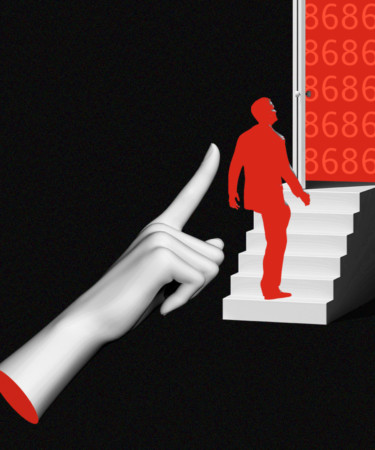At restaurants and watering holes alike, it’s not uncommon to hear your server, chef, or bartender yell out something like, “We’re out of vermouth; 86 those Dirty Martinis!” The expression, which has a meaning similar to “nix” or “halt,” is industry slang that’s been around for decades. But where did the term come from, and how is it used today?
To get to the bottom of it all, VinePair consulted Danilo Bozovic, bartender and author of “Barkeep: The Art of Mixology, Bar and Cocktails” for his expert insight.
“In the hospitality industry, 86 is used for when an item is missing, so you no longer have it in house,” says Bozovic. While the term remains widely used in bars and restaurants as a way for staff members to communicate with one another, Bozovic says it’s been around since the 1930s and is said to have originated with an unlikely group of hospitality workers.
Soda vendors — a.k.a. soda jerks — in the Prohibition era would serve soda with powdered malt and ice cream, “and when they would be out, they would say, ‘86,’” says Bozovic — likely because the number rhymes with nix. “Basically, they would use the term ‘86’ when something was missing or out of stock.”
Other theories suggest that the term originated at Great Depression-era soup kitchens, whose pots only held 85 cups of soup (meaning they were out by the 86th). Others, still, insist the term began in the U.S. military. But wherever the word came from, it certainly stuck.
So much so, in fact, that by the 1950s, 86 was being used as a verb — and as slang for illegal activity. “The illegal activity referred to was murder, so if somebody was 86ed, he was actually gone,” Bozovic says. “I don’t know if that term still applies to that, but I know in my industry, 86 is still used when something is missing.”
This verb usage also carried over to the hospitality industry, where the term began being used to describe customers who needed to be ejected from an establishment. In this case, rather than 86ing a steak or cocktail, a staff member may need to 86 a patron — though Bozovic says this is a rather rare occurrence.
“It’s very hard to be 86ed. It all depends on the establishment, but usually when you are 86ed, that means you’ve really, really done it,” he says. Patrons who have been overserved and are acting violent, or who are disturbing other customers with their words or actions, are often the ones 86ed. “And when you are 86ed, 86 usually lasts for a year,” Bozovic says. “So if that person tries to come back, they tell them, ‘Sorry, you’re not allowed in this establishment for the next year.’”
With its many meanings and lengthy history, “86” has firmly claimed its spot as one of the most universal slang terms in hospitality — even inspiring the name of the company that owns bartender favorites like Fords Gin. And while it may not be a patron’s favorite term to hear while they’re dining or drinking out, it’s one that’s surely here to stay.
Image retrieved from Seventyfour / stock.adobe.com
